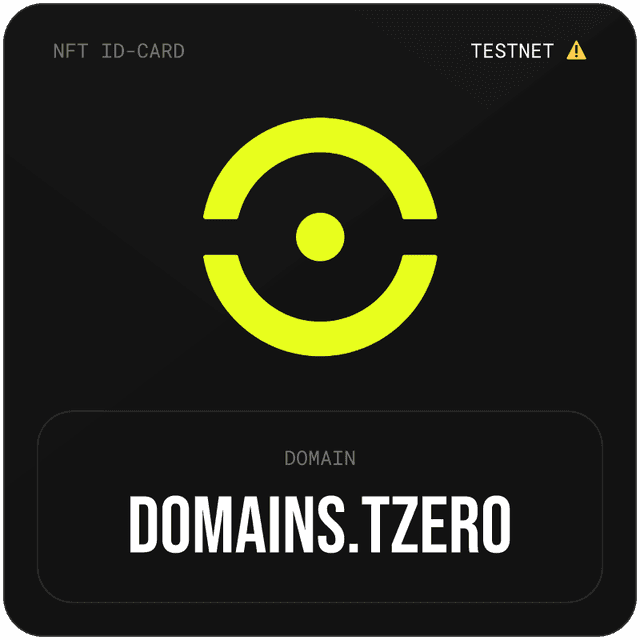Domains as NFTs

At AZERO.ID, we believe that domain names should be more than just static identifiers. Tradability adds a significant dimension to the concept of domain ownership. When issued as Non-Fungible Tokens (NFTs), domains become freely transferable and user-owned right out of the box. This empowers a new level of user control. This enables users to buy, sell, and trade domains like any other valuable onchain asset.
Ownership guarantees
Domains issued by AZERO.ID are fully user-owned and controlled. To improve security and usability, we have implemented a role-based system. This allows users to assign different accounts to own, control, and resolve a domain. The owner can transfer the domain to another address at any time (see our user guide) if it's not listed on a marketplace at the same time.
Marketplace trading
By supporting the open PSP34 NFT standard, our protocol can be integrated with all compatible NFT marketplaces in a permissionless way. This allows users to pick their preferred marketplace for selling, buying, and trading domains.
Starting with our launch, we are excited to partner with ArtZero (opens in a new tab), the leading NFT marketplace on Aleph Zero. Please find our collections linked below.
We plan to introduce a dedicated marketplace for AZERO.ID domains in the future, offering auction functionality and much more.
Metadata
The AZERO.ID registry provides some basic onchain NFT metadata including TLD, character length, registration, and expiration timestamps. It's important to highlight that this static data provided via PSP34Metadata differs from our modular onchain metadata storage system.
Additionally, both metadata systems are complemented by our JSON metadata API (work-in-progress) which ultimately merges both metadata systems into a single, easy-to-fetch metadata JSON file. This will enable developers to access all domain-related information through a single API call.
Visual representation
By leveraging our dynamic NFT image API, each domain gets a unique visual representation that can be used for display purposes (e.g. in other dApps or marketplaces). Over time, this endpoint will become more powerful and might allow domain owners to further customize their domain's look and feel (work-in-progress).
Implementation details
All domain names are represented as onchain NFTs by implementing the PSP34 standard (opens in a new tab) in the protocols Registry contract. Additionally, the PSP34Metadata and PSPEnumerable extensions are supported.
When a domain is listed on an NFT marketplace, the special operator role gets assigned to it and the domain gets locked. Therefore, it cannot be transferred to another address by the owner during the listing. All respective roles (owner, controller, resolver) as well as the domain's metadata stay unchanged though, but will be reset upon transfer via the marketplace. The lock is initiated when passing a certain data parameter in the PSP34::transfer function (see our integration guide).
